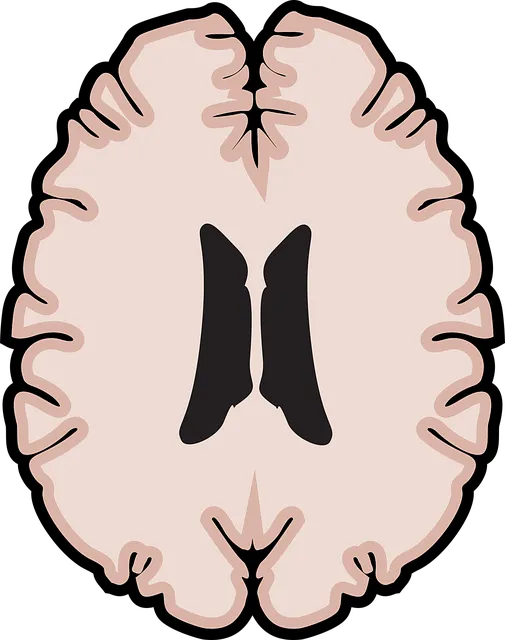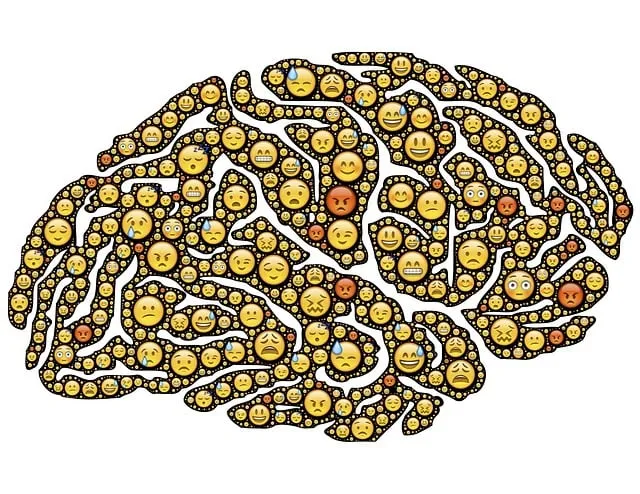Understanding Mental Health Data is a foundational step in analyzing and interpreting insights into individual and population-level mental wellness trends, including disorder prevalence, at-risk groups, and program effectiveness, such as Kaiser Mental Health Classes in Boulder. Through detailed analysis, professionals develop evidence-based Mental Wellness Coaching Programs, identifying complex patterns influenced by social, economic, or cultural factors. Advanced techniques like statistical analysis, cluster analysis, and machine learning are vital for guiding treatment strategies and policy decisions, enhancing interventions like Social Skills Training and Inner Strength Development. Robust interpretations support Mental Health Policy Analysis and Advocacy, driving positive change through data-driven approaches, efficient resource allocation, and targeted programs that improve mental wellness for individuals and communities.
Mental health data analysis and interpretation are vital steps in understanding and addressing complex psychological issues. This article guides you through a structured approach, beginning with establishing a foundation for analyzing mental health data. We introduce the valuable resources provided by the Kaiser Mental Health Classes Boulder, offering unique insights into community mental health trends. Subsequently, we explore techniques to interpret data effectively and demonstrate how these insights can be translated into actionable strategies for improved mental health services.
- Understanding Mental Health Data: A Foundation for Analysis
- The Kaiser Mental Health Classes Boulder: An Overview of the Resource
- Techniques for Effective Data Interpretation in Mental Health
- Applying Insights: Translating Data into Actionable Strategies
Understanding Mental Health Data: A Foundation for Analysis

Understanding Mental Health Data is a foundational step before delving into analysis and interpretation. Mental health data, collected through various methods such as surveys, clinical assessments, and electronic health records, offers valuable insights into individual and population-level mental wellness trends. This data can paint a picture of prevalence rates for specific disorders, identify at-risk groups, and even track the impact of coping skills development programs like those offered by Kaiser Mental Health Classes in Boulder. By analyzing this data, professionals can gain critical insights that inform the design and implementation of effective Mental Wellness Coaching Programs Development.
Properly understanding these data sets allows researchers and practitioners to move beyond simple numbers and identify complex patterns and relationships. This can reveal underlying social, economic, or cultural factors contributing to mental health outcomes, guiding more targeted and personalized interventions. Ultimately, robust data analysis contributes to a more nuanced comprehension of Mental Wellness, paving the way for evidence-based practices that improve lives.
The Kaiser Mental Health Classes Boulder: An Overview of the Resource

The Kaiser Mental Health Classes Boulder offer a comprehensive resource for individuals seeking to deepen their understanding of mental health and wellness. These classes, developed by Kaiser Permanente, are designed to empower participants with practical tools and insights grounded in evidence-based practices. The program incorporates various modules, including the Mind Over Matter Principles, which focus on cultivating resilience and coping strategies through mindfulness and cognitive reframing.
One of the standout aspects is its emphasis on risk management planning for mental health professionals. This component equips practitioners with effective strategies to navigate challenging situations, ensuring they can provide quality care while maintaining their own mental wellness. Additionally, the Boulder classes include guidance on Mental Wellness Journaling Exercises, promoting self-reflection and personal growth. These exercises help individuals track their emotional states, gain insights into triggers, and cultivate a deeper connection with their minds and bodies.
Techniques for Effective Data Interpretation in Mental Health

In mental health data analysis, effective interpretation is key to understanding trends and patterns that can guide treatment strategies and policy decisions. Techniques such as statistical analysis, cluster analysis, and machine learning algorithms help identify correlations between various factors affecting mental well-being. For instance, Kaiser Mental Health classes in Boulder often incorporate advanced analytics to train professionals in recognizing subtleties in patient data, enabling more personalized and effective interventions.
Social Skills Training and Inner Strength Development are critical components that can be enhanced by these analytical methods. By delving into the data, mental health practitioners can tailor programs that foster resilience and improve social integration. Moreover, Mental Health Policy Analysis and Advocacy can be informed by robust interpretations, ensuring policies reflect evidence-based practices that address the unique needs of diverse populations.
Applying Insights: Translating Data into Actionable Strategies

When it comes to applying insights from mental health data analysis, the process isn’t merely academic; it’s a powerful tool for driving positive change. The data collected through Kaiser mental health classes in Boulder and similar programs offers invaluable insights into community mental wellness and the unique challenges faced by individuals. By translating these data points into actionable strategies, mental health professionals can develop tailored interventions that strengthen Inner Strength Development.
This involves identifying trends and patterns that might otherwise remain hidden, such as rising rates of anxiety among young adults or the correlation between socioeconomic factors and depression. These insights can then guide the implementation of targeted programs, from enhanced risk assessment services for Mental Wellness to community outreach initiatives aimed at reducing stigma. Ultimately, this data-driven approach ensures that resources are allocated efficiently, interventions are effective, and the overall mental health landscape is improved, benefiting individuals and communities alike.
Mental health data analysis and interpretation are powerful tools that, when utilized effectively, can drive meaningful change. By understanding the nuances of mental health data and employing techniques like those showcased through the Kaiser Mental Health Classes Boulder, professionals can gain valuable insights to improve patient outcomes. Through thoughtful interpretation, these insights can be translated into actionable strategies, fostering a more informed and responsive approach to mental healthcare. This comprehensive process not only enhances individual lives but also contributes to a healthier and more resilient community as a whole.




